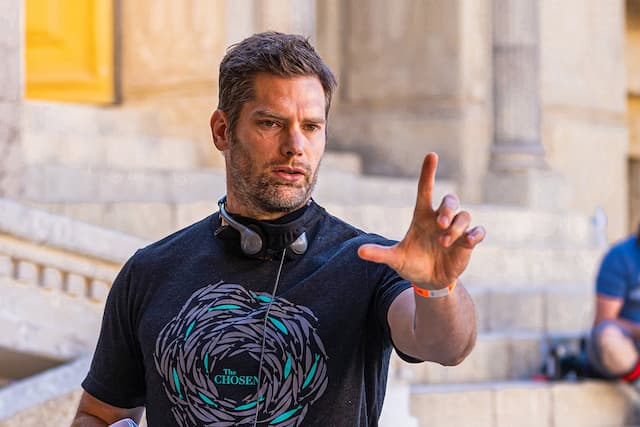I Have the Joy, Joy, Joy, Joy Down in My Heart
This title comes from a song many of us sang while we were still children. However, it was better credentialed by the first followers of Christ. Their radiant faces, supernaturally lit up by God, deeply touched all around them.
If only it were that way today!
John Hunter observed, “One of the present tragedies in the Church is the absence of joy in so many lives.”1 Hunter exclaimed—not brutally, but bluntly— “A joyless Christian is an ineffective Christian.”2
One man who did impress people with his joy was the thirteenth-century Portuguese priest, St. Anthony, of whom it was said, “He seemed to bear on his face … a gladness from heaven that came from no human source.”3
This look from the Lord is one the Lord intends for us to have, too, which is why Andrew Murray said, “One is not living right if he is living a sighing, doubting, trembling life.”4
Of course, one can't go through life grinning; and simply screwing on a smile won't impress anyone, unless you're a gameshow host or a model.
The Counterfeits of Joy
Unable to have real joy, some people will choose a counterfeit. J.H. Jowett spoke of “the rush to be rich, the race to be happy, the craving for sensation.”5 The joy counterfeit chosen may even be what the Bible calls “the passing pleasures of sin” (Hebrews 11:25)—for example, the “buzz” that comes from a few drinks, or the “hormonal high” that comes from a sexual escapade.
A young man once approached a renowned doctor in Paris, saying that he was despondent over the emptiness of life. In reply, the doctor, speaking with a trace of envy, pictured the happy life of Grimaldi, a young man-about-town in Paris nightclubs. “Go to him,” said the doctor. “Let him show you how to have a good time.”
The downcast patient then looked up and with a sardonic smile said, “But I’m Grimaldi.”
The carefree life isn’t all that it is cracked up to be! Proverbs 15:21 says, “Folly is joy to him who is destitute of discernment ....”
In other words, if we don’t have any sense, we’ll settle for something so much less than what God has to offer. What we must remember, though, is that when the Bible talked about “the pleasures of sin,” it added an ominous phrase, “for a season.”
The intended implication being: This is a gratification that won’t last. What once satisfied, incrementally loses its appeal until eventually the appeal is gone. J.I. Packer added historical commentary to this point when he lamented: “Poor pathetic Marie Antoinette had everything a queen could ask for and ended up bored stiff: her final complaint was, 'Nothing tastes.' Pleasure-seeking, of whatever kind and at whatever level, is subject to the law of diminishing returns.”6
But while the thrill won’t last, its dominion over you probably will! You will discover that you can’t get free and, to the chagrin of your frustrated soul, you can’t get satisfaction.
A.B. Simpson warned, “There is nothing that so relaxes the cords of spiritual earnestness as the life of the world, the life of ease and pleasure.”7 Because unnoticed, but complicit with this agenda, is a willingness to neglect one’s spirit and enthrone oneself.
Whenever we sequester self in an environment that entices with entertainment and pampers with pleasure, we invariably idle our spiritual growth—this due to brain-numbing, soul-shriveling amusement.
Why do this?
The playwright William Saroyan said it well, “Only the pigs are happy.” These rotund creatures of ridicule can slosh around in the mud, enjoying the sun and the breeze and their carefree environment.
But not to be forgotten is the close connection between swine and sludge, and the connection between boars and bilge.
Whether we frolic in filth or something less demeaning, such is hardly worthy of us. Saroyan observed, “The greatest happiness is knowing that you don’t have to be happy.” Alexander Maclaren declared, “God has larger and nobler designs for us than merely to make us happy.”8
The Correct Concept of Joy
This perhaps explains why Jesus was never frantic to perk people up, intent that they should be exuberant with intoxicating glee. Jesus’ most characteristic greeting, “Be of good cheer,” was never one of a revved-up euphoria.
The idea that joy is first an emotion—a breezy, effervescent spirit that enables one to go through life flashing toothy smiles—must be directly challenged. It is true that Jesus talked about a joy no one could take away. But this joy had a firmer foundation.
Joy is a belief in the unfailing faithfulness of God and in the complete sufficiency of his resources. But as was the case for Jesus that night in the garden, the froth of delighted feelings may be absent from us as well. This need not mean that joy is absent or in any way diminished.
What we often confuse with joy is what the Bible calls gladness of heart. But although this gladness is produced by joy, it doesn’t equate with joy. The real nature of joy is found in the unbendable belief that God is willing and able to meet every need!
The basis of this joy, as John 16 makes clear, is heaven backing us up, the Lord answering our prayers, the faithful one being faithful. “Ask,” Jesus said, “and you will receive” (notice: not might, could, or perhaps), but “you will receive, that your joy may be full” (John 16:24b).
The roller coaster Christianity with which many of us are most familiar—up on the mountaintop for a while, down in the valley for a longer while—is out of sync with what Jesus promised. If Jesus said that our joy can “remain,” then there must be a way to bring the mountaintop into the valley!
Moreover, if his words are true, we won’t have to be profoundly confused in our thinking or severely damaged in our emotions. Instead, joy—for every situation, relationship, or challenge—can keep us looking to our ever willing and able God for another demonstration of his greatness.
The connection between joy and belief is further stressed in I Peter 1:8 when the apostle wrote, “Though now you do not see Him, yet believing, you rejoice with joy inexpressible and full of glory ….”
Commenting on I Peter 1:8, R.A. Torrey said, “The Greek word translated ‘joy’ is a very strong word, describing extreme joy or jubilant joy. The word ‘inexpressible’ declares that this jubilant joy is of such a character that we cannot, by any possibility, explain it adequately to others.”9
The Constancy of Joy
This is a joy that exists entirely and eternally in God. In 1677, Henry Scougal offered this observation in his remarkable book, The Life of God in the Soul of Man. “It should delight beyond all expression that the beloved of our souls is infinitely happy in himself.”
And just think: Because the Lord's life is now your new nature, and because one part of the fruit of that new nature is joy, what you want is already inside you!
The need, then, is for your new nature to be released! The joy of the Lord won't be found anywhere else.
Network newscaster, David Brinkley, once quoted one of the Moorish kings who after fifty years of reign declared, “I have enjoyed total power, the affection of my friends, the respect of my enemies, every earthly pleasure at the clapping of my hands, and in fifty years my days of happiness number about fourteen.”
David Brinkley was then asked how many days of happiness he had known. His eyes narrowed, a tight smile appeared on his lips, and in characteristic candor he answered, “about fourteen.”
This is always the way—fame, fortune, friendships, and fun can never reward us like the joy of God can.10 This is why hymn writer John Newton said that God has to break all our “schemes of earthly joy.”
But in sharp contrast to David Brinkley’s testimony, is that remarkable breakthrough Hudson Taylor experienced once the Spirit of God finally filled him. “Unspeakable joy all day long and everyday was my happy experience,” he wrote. “God, even my God, was a living bright reality, and all I had to do was joyful service.”11
Is this your testimony? Do you have the joy, joy, joy, joy down in your heart?
Notes
1. John E. Hunter, Knowing God’s Secret, (Grand Rapids, Zondervan, 1972), p.35.
2. Ibid., p.62.
3. Amy Carmichael, Learning of God, compiled by Stuart and Brenda Blanch, (Ft. Washington, PA., CLC Publications, 2000), p.13.
4. Andrew Murray, The Believer’s Secret of the Master’s Indwelling, (Minneapolis, Bethany House Publishers, 1977), p.144.
5. J.H. Jowett, The Passion for Souls, (London and Edinburgh, Fleming H. Revell Company, 1905), p.96.
6. J.I. Packer, Knowing Man, (Westchester, IL., Crossway Books, 1979), p.47.
7. A.B. Simpson, The Christ in the Bible Commentary, Volume Two, (Camp Hill, PA., WingSpread Publishers, 2009), p.58.
8. Alexander Maclaren, Expositions of Holy Scripture, Isaiah and Jeremiah, Public Domain Books, Kindle Locations: Kindle Locations: 1776-1777.
9. R.A. Torrey, “How to be Inexpressibly Happy,” Sermonindex.net
10. J.C. Ryle records a similar testimony, true of Goethe. “His works were read and admired by thousands. His name was known and honored, wherever German was read, all over the world. And yet the praise of man, of which he reaped such an abundant harvest, was utterly unable to make Goethe happy. He confessed, when about eighty years old, that he could not remember being in a really happy state of mind even for a few weeks together ….” Practical Religion, (Kindle Edition, 2010, Locations: 3707-3710).
11. Dr. and Mrs. Howard Taylor, Hudson Taylor in Early Years: The Growth of a Soul, (New York: Hodder and Stoughton; George H. Doran Co., 1912), p.125.











